If your religion doesn’t make you happy now, can you count on it to make you happy hereafter?
Would you buy a car if broke down during your test drive? If the free sample offered in the grocery store tasted awful, would you be tempted to buy an entire case? If your religion doesn’t make you happy now, should you expect it to bring you bliss hereafter?

Many believers in past ages took it for granted that we weren’t even supposed to be happy in this life. Supposedly we were meant to suffer and sacrifice throughout mortality, in return for an ill-defined glory hereafter. But the prophet Brigham Young taught that a religion doesn’t make you happy in this life shouldn’t be depended on to make you happy in the next. Jesus Himself taught that “by their fruits ye shall know them.” If a young tree produces tasty fruit one season, there is every reason to expect it to do so again. But if it produces bitter fruit this year, it will likely do the same in the year ahead.

Certainly, Latter-day Saints don’t have a monopoly on happiness. But I am convinced that through the doctrines and practices of The Church of Jesus Christ of Latter-day Saints one can find a deeper and more enduring happiness, both here and hereafter, than is possible in any other way. Let me offer a preliminary outline of why I am convinced that is so.
Knowing who we are
How would it be to find you descended from a billionaire and were the sole legal heir to his fortune? That is nothing compared to learning we are literally children of God Himself. Modern revelation teaches that we lived with Him prior to this life as His spirit children. We learn that He loves us, that He is watching over us throughout our life, and that He has prepared a “great plan of happiness” (Book of Mormon, Alma 42:8) to bless us now as well as hereafter. And we learn that as His children, we are heirs to all that He has. Throughout eternity we can become increasingly like Him, enjoying all that He enjoys. (Romans 8:17.)
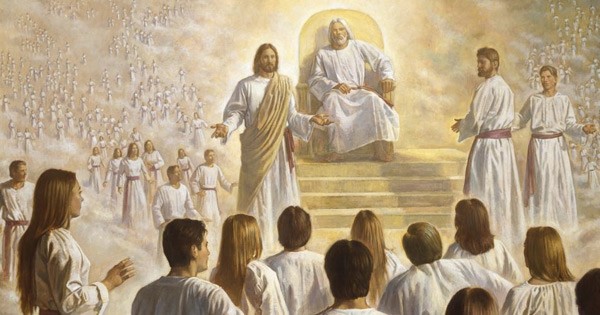
Knowing the purpose of life
Few experiences are more intimidating than being lost in the woods, not knowing which way to turn or what we need to do to find our way home. Most of humanity is in just that situation. They don’t know where they came from or why they are here. They have no idea what to do to get where they would want to be. The gospel of Jesus Christ provides those answers.

Knowing of the life, mission, and atonement of Jesus Christ
Everyone understands that sooner or later he must die. Comparatively few understand what happens afterwards. Through both the Bible and modern scriptures we learn that Christ’s suffering, death, and resurrection ensure our own future resurrection. They teach that Jesus Christ, in ways we cannot fully understand, paid the price for all our sins, mistakes, and imperfections. This makes it possible to overcome the feelings of guilt, loneliness, and sorrow that are common to all of us. He asks only that we accept His terms. If we do, we can return to God’s presence hereafter. And we can there have that fulness of joy we found only in part while on the earth. But having experienced something of that deep happiness here, we have reason to hope it will continue eternally.

Knowing of the eternity of the family unit
Ministers through the ages have performed weddings “until death do you part.” But it is only natural to long for a continuation of the family unit hereafter. Latter-day revelation makes clear that those who are married or “sealed” in a Latter-day Saint temple can be united not just for this life but for all eternity. Latter-day Saints envision heaven itself as something of a perpetuation of the ideal family unit. There they expect to enjoy eternal loving associations with parents, siblings, spouse, and children.
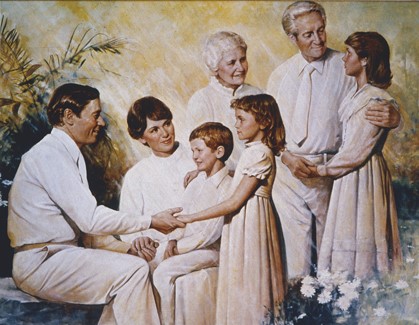
Living prophets and modern scriptures
Latter-day Saints rejoice that since 1820 there has been an unbroken chain of divinely called prophets on the earth. They reveal God’s will for us as much as Moses, Elijah, Peter, and Paul did anciently. Along with other Christians, we revere the Bible as the word of God. But we are grateful to have additional scriptural records of God’s dealings with His children at other times and places. Foremost among these is the Book of Mormon—Another Testament of Jesus Christ. The Book of Mormon details God’s dealings with prophets in Ancient America. And it tells of the visit of the resurrected Jesus Christ to the Americas following His resurrection.
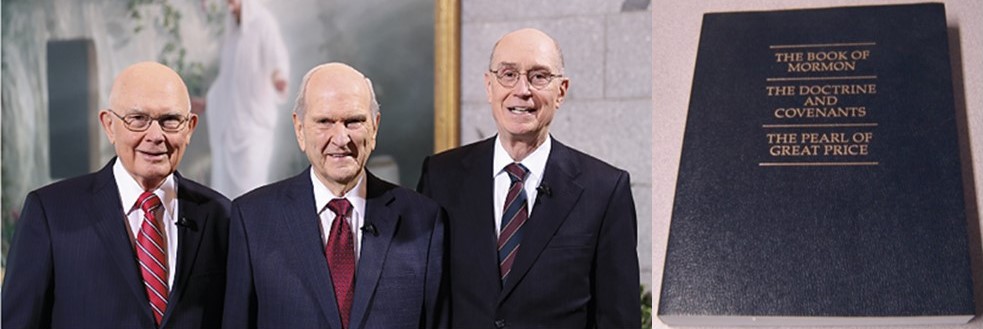
The Gift of the Holy Ghost
One of the great keys to happiness is to receive what the scriptures call the “gift of the Holy Ghost.” This is conferred upon all who exercise faith in Jesus Christ and change their lives to conform to His teachings. This includes accepting baptism into His Church. Through that gift one can receive personal inspiration to guide his life. He can be comforted in times of sorrow and strengthened in times of need. He can receive miraculous divine power in a variety of ways, as circumstances may require. And he can receive all the other “fruits of the spirit” spoken of by Paul. These include “love, joy, peace, longsuffering, gentleness, goodness, faith, meekness, [and] temperance.” (Galatians 5:22-23.)

Temples and opportunities for our deceased relatives
Many Christians have been puzzled by a seeming scriptural contradiction. On the one hand, the Bible teaches that God is loving and merciful. On the other hand, it teaches that only those who are baptized can be saved. What about the millions who have died without hearing about the gospel of Jesus Christ? What about innocent babies? Some have understood that those who died without baptism are clearly to be damned. Others have been offended by the evident unfairness of such a doctrine. They have opted to believe Jesus didn’t really mean it when He said that baptism was necessary.

Through modern revelation a puzzling reference to “baptism for the dead” in 1 Corinthians 15:29 finally made sense. We learn that those who did not have the opportunity to hear the gospel here will have it hereafter. Living relatives would be privileged to receive needed ordinances such as baptism and eternal marriage vicariously, on their behalf. That is a primary function of Latter-day Saint temples. Naturally, such baptism would be effective only if the deceased relative in the spirit world accepted it. No one is compelled to become a Latter-day Saint against his will! But what marvelous hope this doctrine provides for those concerned about the fate of ancestors and other loved ones who didn’t have the opportunities in this life that we do now.
Opportunities for service in an organized way
Latter-day Saints recognize that by working together believers can accomplish more than they could individually. They find that real happiness is found more in serving than in being served. With no paid or local professional clergy, any member may be called upon to lead a congregation or an auxiliary organization. All get to serve as teachers, give talks in church, and serve in a myriad of other ways. In doing so, each further develops his talents and has the pleasure of helping others.
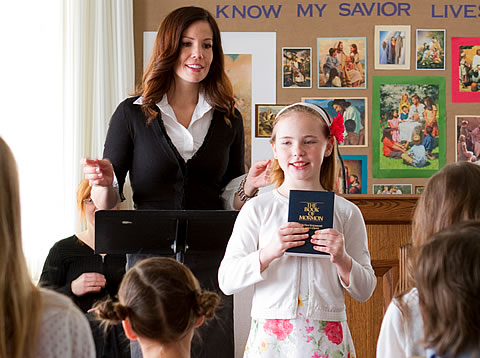
A community of friends
Latter-day Saints look upon the Church as more than simply a religious structure. It is also a group of instant friends, each committed to loving and serving the others. Wherever one moves in the world, there will be a group of strangers (soon to be friends) prepared to help a family move in and get acquainted, and a support structure to provide ongoing assistance as needed.

A practical religion
Far from being a mere Sunday religion or one focused primarily on the afterlife, the gospel of Christ is designed to help its adherents be happy and successful here and now. A revealed health code has helped Mormons be healthier and have greater longevity than most. An emphasis on education helps them prepare for success in the workplace. Teachings on provident living help them manage finances and other resources wisely. Recreational activities help cement friendships and provide a needed release. An Article of Faith of the Church proclaims, “If there is anything virtuous, lovely, of good report, or praiseworthy, we seek after these things.”

How to know if this is really true
Of course, no one is likely to take an expensive medicine until he is convinced that it is likely to cure his illness. Similarly, before the gospel of Jesus Christ, as taught by The Church of Jesus Christ of Latter-day Saints can help make anyone happy, he must become convinced that its claims are true. Happily, God has provided a way to gain that conviction. There are three main steps to doing so:
Ask God
First is the same promise that led Joseph Smith into the woods to pray: “If any of you lack wisdom, let him ask of God, that giveth to all men liberally, and upbraideth not; and it shall be given him.” (James 1:5.) Or, as Jesus taught, “Ask, and ye shall receive.”

The Book of Mormon
Second, the Book of Mormon serves as a great test of Joseph Smith’s claims. It contains a promise that sincere readers of the book who ask God for a witness of its truthfulness will receive one. (Book of Mormon, Moroni 10:4-5.) Millions of Latter-day Saints testify that it works. Through reading that book they have received an unmistakable assurance that the book is both true and wonderful news. I am among those millions.

Try it!
Jesus suggested one more way to know if a doctrine is true or not—try it out! He said, “If any man will do his will, he shall know of the doctrine, whether it be of God, or whether I speak of myself.” If one wants to know if the Church is true, he need only act for a month as though it were. Let him attend church faithfully, arrive early, sit near the front, and participate actively in the classes. He can even stand at the chapel door and greet people as they come in for Sunday services. He will want to volunteer for service projects. In this experiment he will need to pay his tithes and offerings as though he were already a member. He must abstain from alcohol, tobacco, coffee and tea, and harmful drugs. Let him read his scriptures and other Church literature at home and have his personal and family prayers. And in every other way he should try living the teachings of the Church. At the end of the month, let him ask himself how he feels. If he feels a calm and sweet assurance that this is good and true, would that not be his answer?

All the above steps imply a willingness to accept a positive answer, should it come, and a willingness to act upon its consequences. One who prays or reads hoping for a negative answer, so he won’t have to live a Christian lifestyle or accept the responsibilities of membership, will almost certainly not receive a positive answer. But if he prays, reads, and acts with “real intent,” as Moroni put it, the answer will come. I know that to be true. And I know that can be the beginning of greater happiness here and hereafter than one has ever imagined possible.
Cer
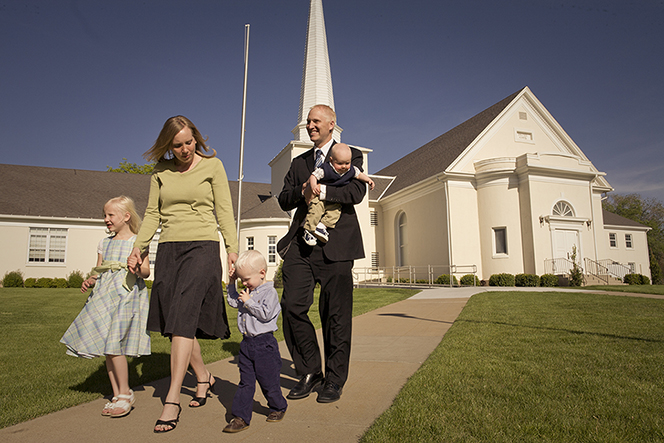
I don’t think so